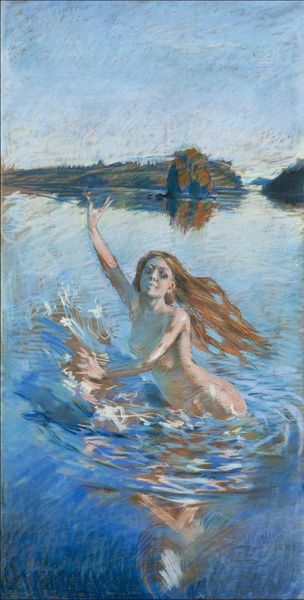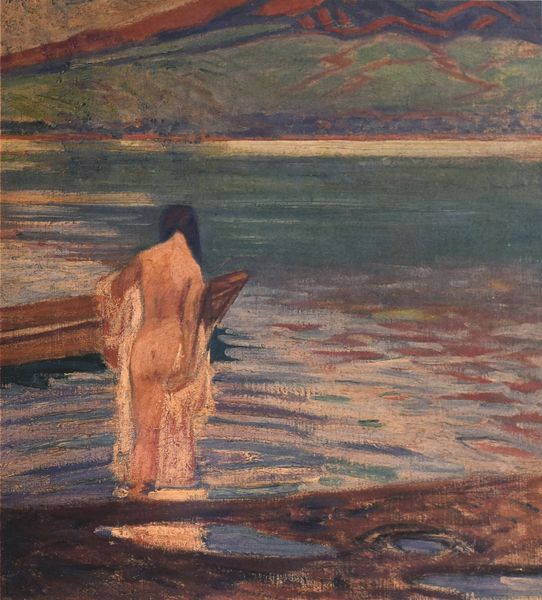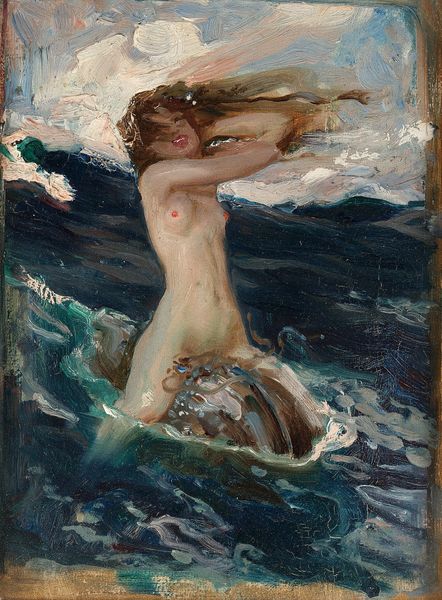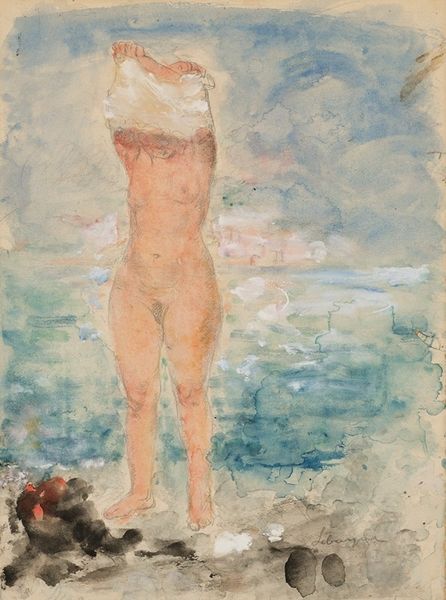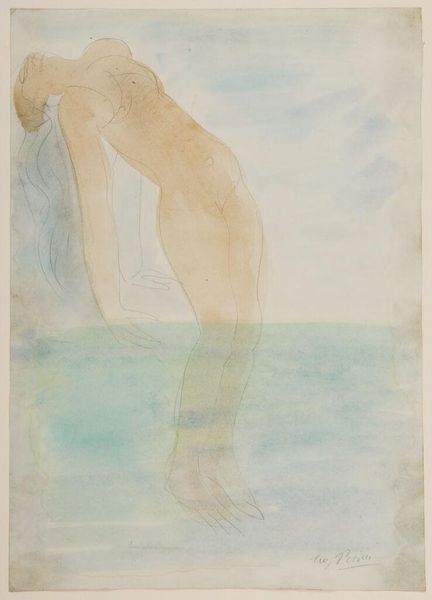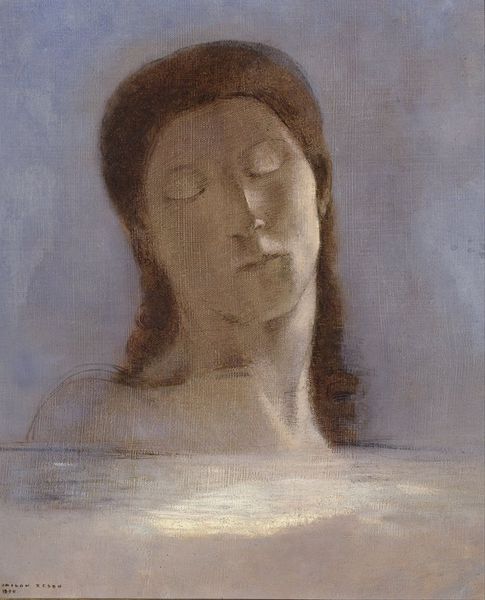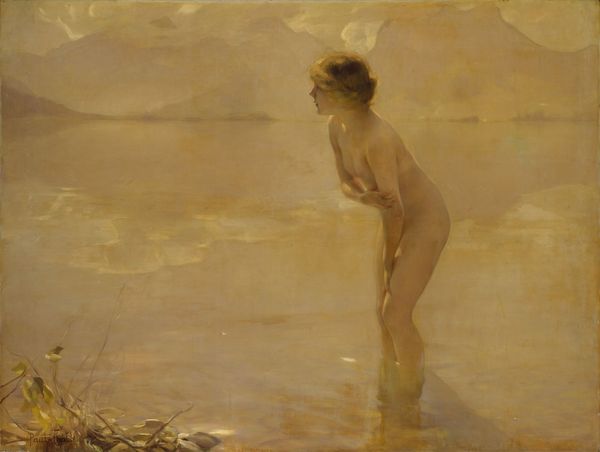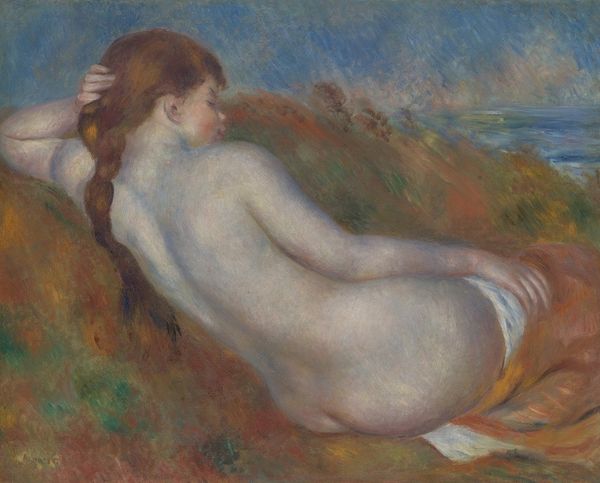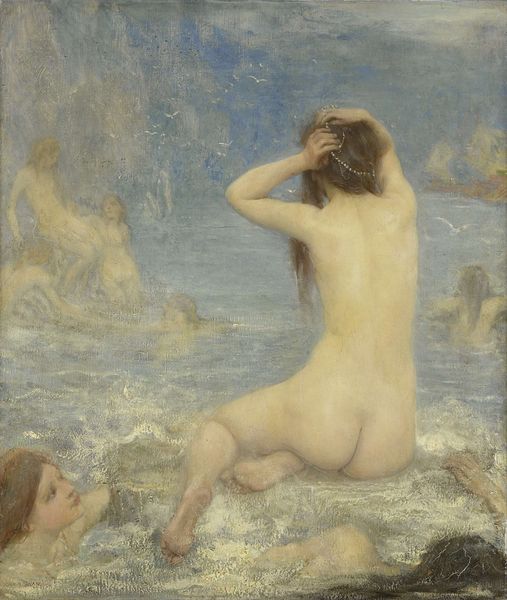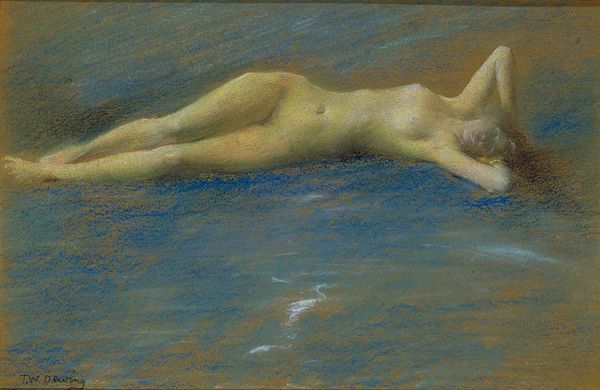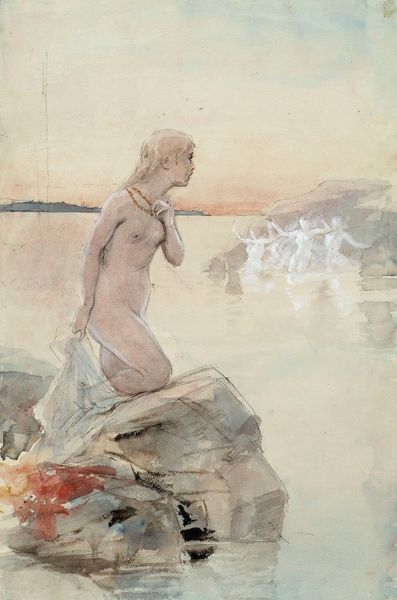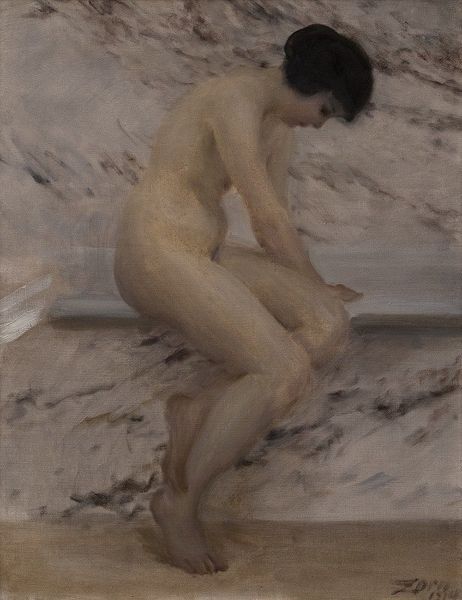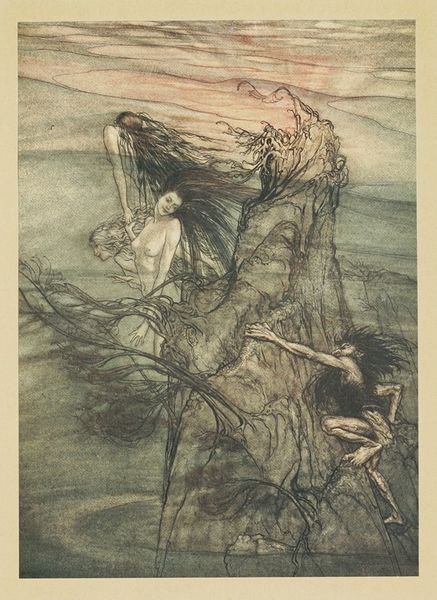
drawing, watercolor
#
portrait
#
drawing
#
landscape
#
watercolor
#
romanticism
#
watercolour illustration
#
nude
#
watercolor
Copyright: Public domain
Editor: This watercolour piece, titled "In the Water" by Albert Edelfelt, really strikes me with its ethereal quality. It’s dreamy and soft. What's your take on it? Curator: I see a challenge to traditional hierarchies here. Watercolors, traditionally considered a "lesser" medium than oil, are used to depict a classical subject – a nude, reminiscent of romantic fantasies. The *process* itself, the quick, fluid nature of watercolor, subverts the laborious crafting often associated with 'high art'. What does that suggest to you about Edelfelt's aims in terms of the art market and artmaking labour? Editor: So, it's almost a deliberate democratization of art, in terms of process and the medium? Curator: Precisely. Think about the social context: Romanticism, with its emphasis on emotion and nature, still lingering, yet the rise of industrial production impacting everyday life. Edelfelt uses a medium easily reproduced to create what feels like a unique, individual experience of encountering a mythical being. We must look at how this relates to material production and consumption. What would have the reception been, culturally and socially, of this material choice? Editor: I see... By using watercolor, a more accessible material, Edelfelt could have broadened his audience. And by depicting this kind of intimate mythological encounter, was he kind of offering an escape from industrial realities? Curator: Perhaps. The choice of watercolor facilitated a quicker production, making his art more available. It moves beyond individual expression to material and social engagement. How fascinating. Editor: That's a completely different angle than what I initially saw. Looking at art from its means of production is definitely eye-opening. Curator: Absolutely. The medium is not just the message, it is a crucial aspect of production in cultural context.
Comments
No comments
Be the first to comment and join the conversation on the ultimate creative platform.
